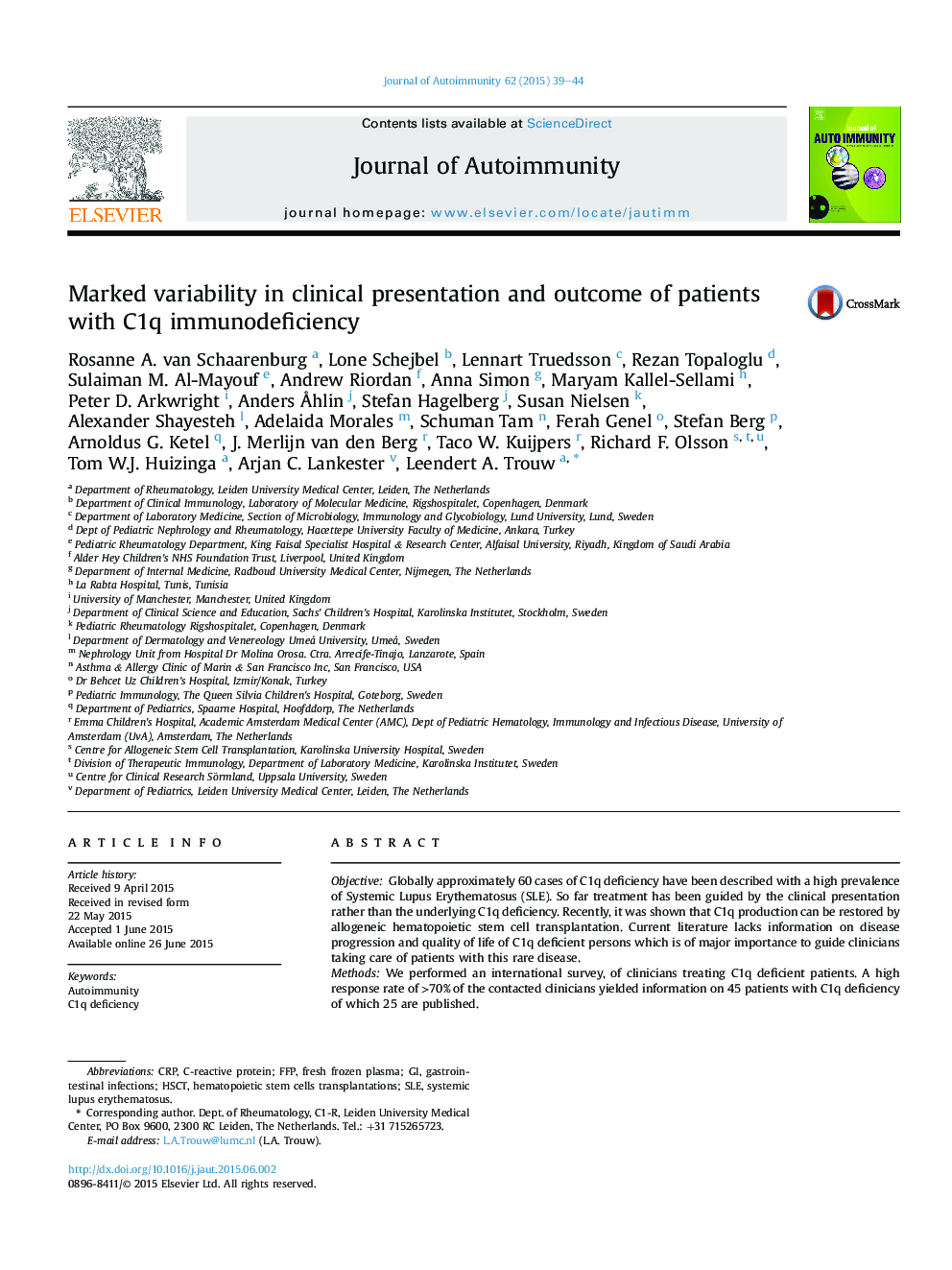| کد مقاله | کد نشریه | سال انتشار | مقاله انگلیسی | نسخه تمام متن |
|---|---|---|---|---|
| 3367683 | 1592287 | 2015 | 6 صفحه PDF | دانلود رایگان |

• C1q deficiency is in most patients associated with SLE, recurrent infections or both.
• Treatment options for C1q deficiency now also includes Hematopoietic Stem Cells Transplantation.
• There are C1q deficient individuals without any clinical or serological markers of disease.
• Each C1q deficient patient requires a personalized approach.
• Most fatalities occur before the age of 20.
ObjectiveGlobally approximately 60 cases of C1q deficiency have been described with a high prevalence of Systemic Lupus Erythematosus (SLE). So far treatment has been guided by the clinical presentation rather than the underlying C1q deficiency. Recently, it was shown that C1q production can be restored by allogeneic hematopoietic stem cell transplantation. Current literature lacks information on disease progression and quality of life of C1q deficient persons which is of major importance to guide clinicians taking care of patients with this rare disease.MethodsWe performed an international survey, of clinicians treating C1q deficient patients. A high response rate of >70% of the contacted clinicians yielded information on 45 patients with C1q deficiency of which 25 are published.ResultsFollow-up data of 45 patients from 31 families was obtained for a median of 11 years after diagnosis. Of these patients 36 (80%) suffer from SLE, of which 16 suffer from SLE and infections, 5 (11%) suffer from infections only and 4 (9%) have no symptoms. In total 9 (20%) of the C1q deficient individuals had died. All except for one died before the age of 20 years. Estimated survival times suggest 20% case-fatality before the age of 20, and at least 50% of patients are expected to reach their middle ages.ConclusionHere we report the largest phenotypic data set on C1q deficiency to date, revealing high variance; with high mortality but also a subset of patients with an excellent prognosis. Management of C1q deficiency requires a personalized approach.
Journal: Journal of Autoimmunity - Volume 62, August 2015, Pages 39–44